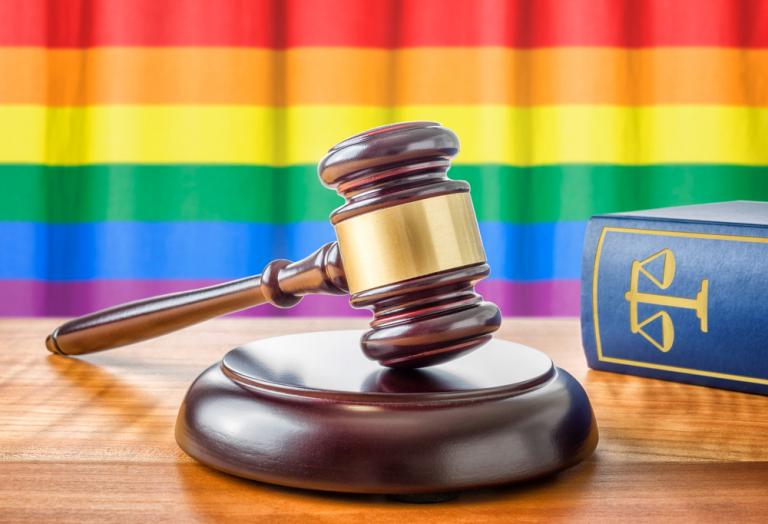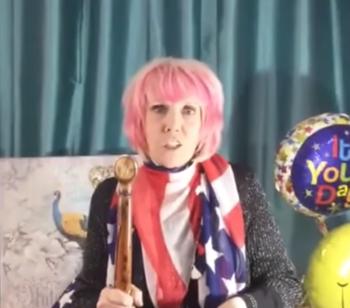After a legal battle lasting nearly five years, the Supreme Court of Canada ruled today that it was legal to deny accreditation to Trinity Western University’s proposed law school in British Columbia. That means graduates of the Christian law school may not have the paperwork needed to practice law in certain provinces, making their diplomas effectively useless.
The separate 7-2 decisions were based on Trinity Western’s requirement that students had to sign a statement saying “sexual intimacy” was only reserved for straight couples. Because of that anti-gay policy, law societies in Ontario, British Columbia, and Nova Scotia said in 2013 that they would refuse to grant accreditation to potential graduates of the school. (Other provinces said they would accept graduates into the bar.)
The school sued in all three of those provinces that refused to consider their future graduates. In British Columbia and Nova Scotia, the school won. But in Ontario, the school lost.
The Supreme Court was tasked with settling appeals in both British Columbia and Ontario, and in both cases, they sided with the legal societies.
The justices argued that Trinity Western’s anti-gay policy would be harmful to and discriminatory against LGBTQ students, and that the legal profession had every right to ensure equal access to their profession.

… the question the Court had to answer was whether the Law Societies’ decisions not to approve TWU’s proposed law school were reasonable. They said that they were. To be considered reasonable, the decisions had to strike a proportionate balance between the religious rights of the TWU community and the Law Societies’ objectives to protect the public interest. For the majority, the “public interest” included promoting equality by ensuring equal access to the legal profession, supporting diversity within the bar, and preventing harm to LGBTQ law students. Neither Law Society was stopping someone from following his or her own religious beliefs (including following the covenant if s/he wanted to). They only prevented TWU from enforcing beliefs on other members of the law school community. Because of this, the majority said the decisions did not seriously limit anyone’s religious freedoms.
If this decision seems surprising to you, it may be because the Canadian and U.S. laws see these situations differently.
In the U.S., students who graduate from fundamentalist Christian law schools are still considered lawyers (assuming they pass their states’ bar exams). They don’t have to agree with the law in order to understand what it is and how it must be applied. That’s why graduates of, say, Liberty University’s law school can still find jobs. It’s like a Young Earth Creationist who successfully defends an evidence-based thesis in geoscience — if you did the same work as the other students, your beliefs shouldn’t block you from using your degree as you see fit. And by all accounts, Trinity Western’s law school has a sound curriculum. It just also holds a belief that homosexual acts are sinful.
But the Canadian Supreme Court said the desire for a more just, more equal society trumps the “religious freedom” of the Christian law school to discriminate against LGBTQ students.
Already, the U.S.-based Alliance Defending Freedom is crying foul:
“The Supreme Court of Canada has abandoned the promise of freedom that led to the creation of the Canadian Charter of Rights and Freedoms 36 years ago. Individuals will need to turn to their legislators to protect freedom of religion,” said Gerald Chipeur, Q.C., of the Canadian firm Miller Thompson, LLP, and one of more than 3,000 lawyers allied with ADF International.
…
“Religious universities and schools should be free to operate according to the faith they teach and to which they adhere,” said ADF International Executive Director Paul Coleman. “We are deeply disappointed with the Supreme Court’s decision. Freedom of religion and association is not only essential for faith-based organizations, but for the functioning of democracy itself. Following this ruling, that vital freedom is now in jeopardy.”
That freedom is not in jeopardy. The students have every right to their bigoted beliefs, and they’re welcome to attend other law schools. Trinity Western is also free to maintain its anti-gay policies. The only thing the Supreme Court said today was that legal societies in different provinces have the right to turn their backs on students who graduate from an anti-gay school. It’s better for society that way.
You can expect more whining about religious freedom as the day progresses, but this is a victory for those who believe discrimination, regardless of the source, has no place in civil society.
(Image via Shutterstock. Thanks to Russ and Genevieve for the link. Portions of this article were posted earlier)




It’s Moving Day for the Friendly ..."
It’s Moving Day for the Friendly ..."
It’s Moving Day for the Friendly ..."
It’s Moving Day for the Friendly ..."